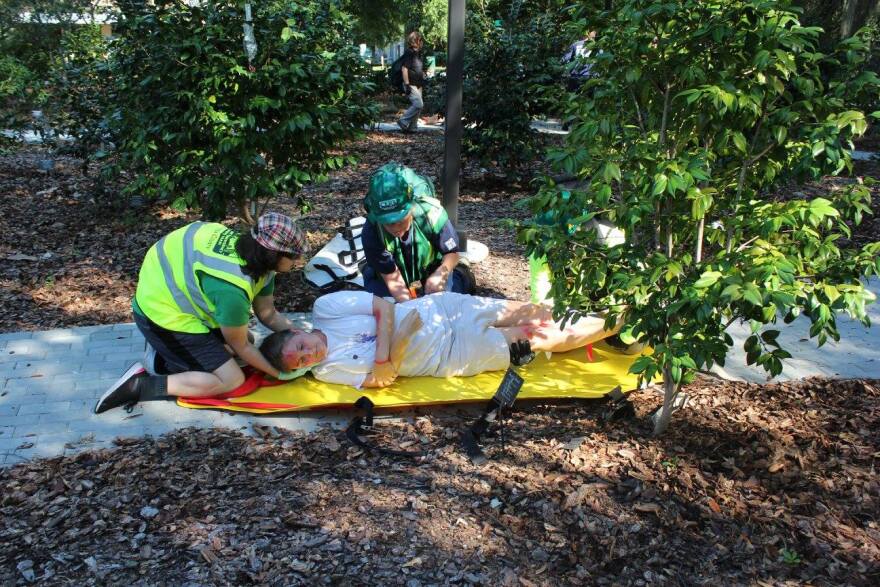As hurricane season begins to heat up, a local group is offering CERT training for people who would to volunteer to help after a storm or any other emergency.
The training is offered by BRACE, the Be Ready Alliance Coordinating for Emergencies, a group that was formed after Hurricanes Ivan and Dennis that, among other things, trains people who want to volunteer to help after emergencies. Dale Flemming is the training coordinator for BRACE. “CERT training is Community Emergency Response Team which is made up of individuals who volunteer to participate and help in any way possible after an event such as a hurricane or tornado or severe fire or some other type of emergency.”
The training is a 21-hour course that covers topics from disaster preparedness and organization to fire suppression and search and rescue. There’s even some fundamental medical training that goes beyond basic first aid.
“There’s about six hours of medical training. There are two different sections of it. It starts out with basic (first aid) but it will get into (more) triage type training where you go in and assess the situation, separate the individuals based on what their injuries are, and tag them for the more professional (responders) when they come, your EMTs, fire department and so on.”
The medical training is not just physical and not just for victims. There is a section of the course that focuses on the physiological health of first responders.
“A lot of the first responders, firemen, policemen, CERT, they are going in and they are seeing things they’ve never seen before. They (have) to deal with injured people from the storm, devastation, their homes are destroyed or ruined, family members hurt. And during the time of the storm and right immediately after, you’re working on adrenaline, and a lot of things don’t sink in. But then, all of a sudden, you’re sitting back and reflecting on what you have been seeing and it takes a huge toll on us mentally. So we call it Mental Resilience Training.”

The CERT training is offered several times during the year and is given during the day or in the evening to fit volunteers’ schedules. And while natural disasters and fires are the most common emergencies a CERT volunteer will encounter, Dale Flemming says they also offer training on how to deal with terrorism. “As much as we hate to look at what’s going on here in our own country, we still have what most people consider acts of terrorism with the shootings and things like that. So we do have different types of training in (dealing with) terrorism. Active shooter training. We have guidelines on what to do based on things that have happened through the last few decades. (For example) do you run? Do you hide? What do you do when you see someone leave a package? Things like that.”
The next round of CERT training begins Wednesday. It’s a three-day session held from 9 a.m. until 4 p.m. A four-day evening session begins September 23. Flemming says that anyone who wants to volunteer to help in an emergency is going to need some training. “The non-profits that work most of the disaster events (are) going to want you to have CERT training. And that’s not local, it’s in all 50 states. It started in the mid-90s in Los Angeles and it’s expanded greatly. FEMA later adopted it and it has grown. There are some 220 classes that you can take online at FEMA now. Anyone can take them and they’re all free. And the CERT training is also free.”
You can learn more about these free classes at escambiacert.org, or by calling 850-444-7046 or 850-207-7568.


